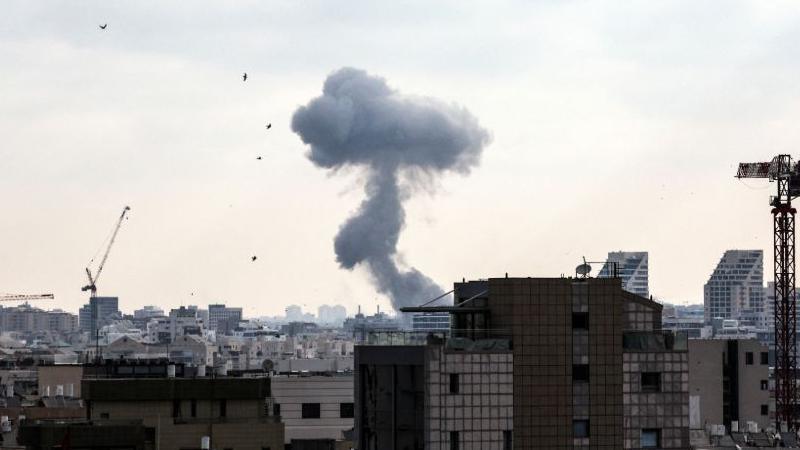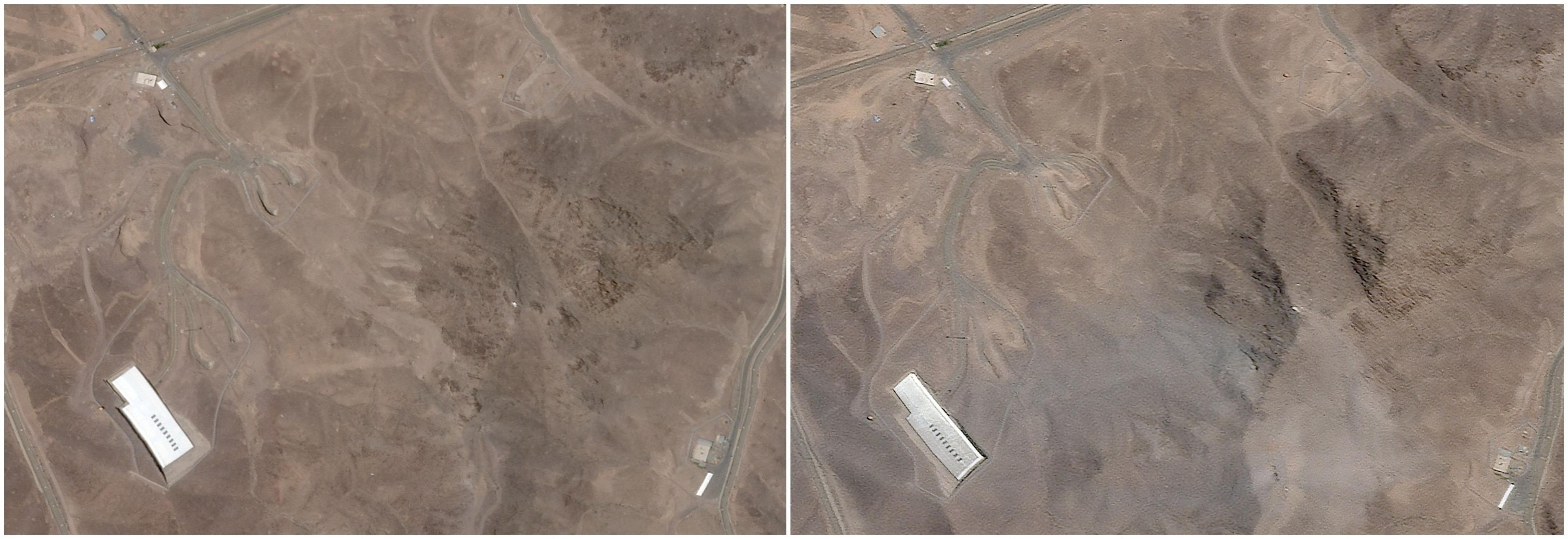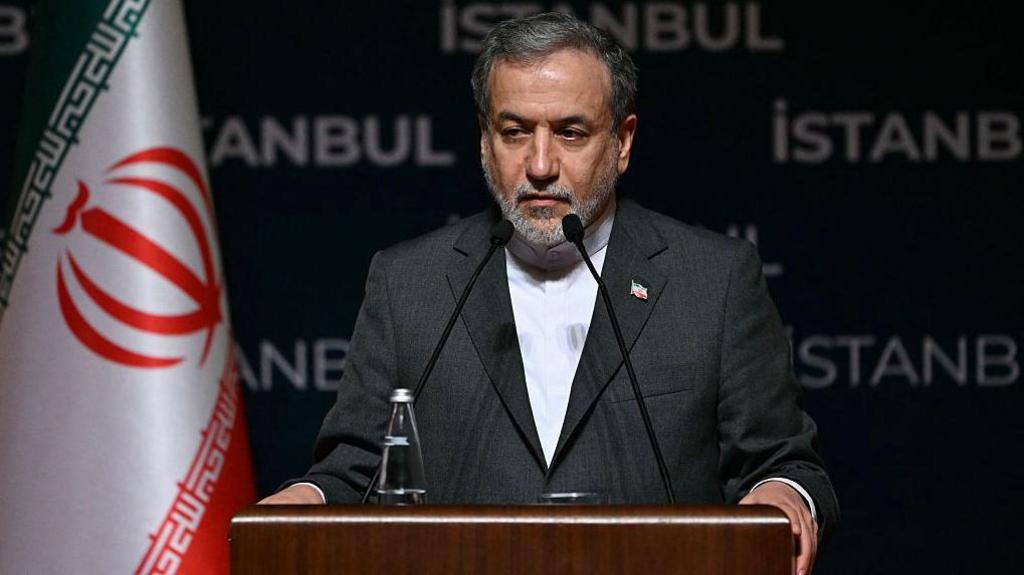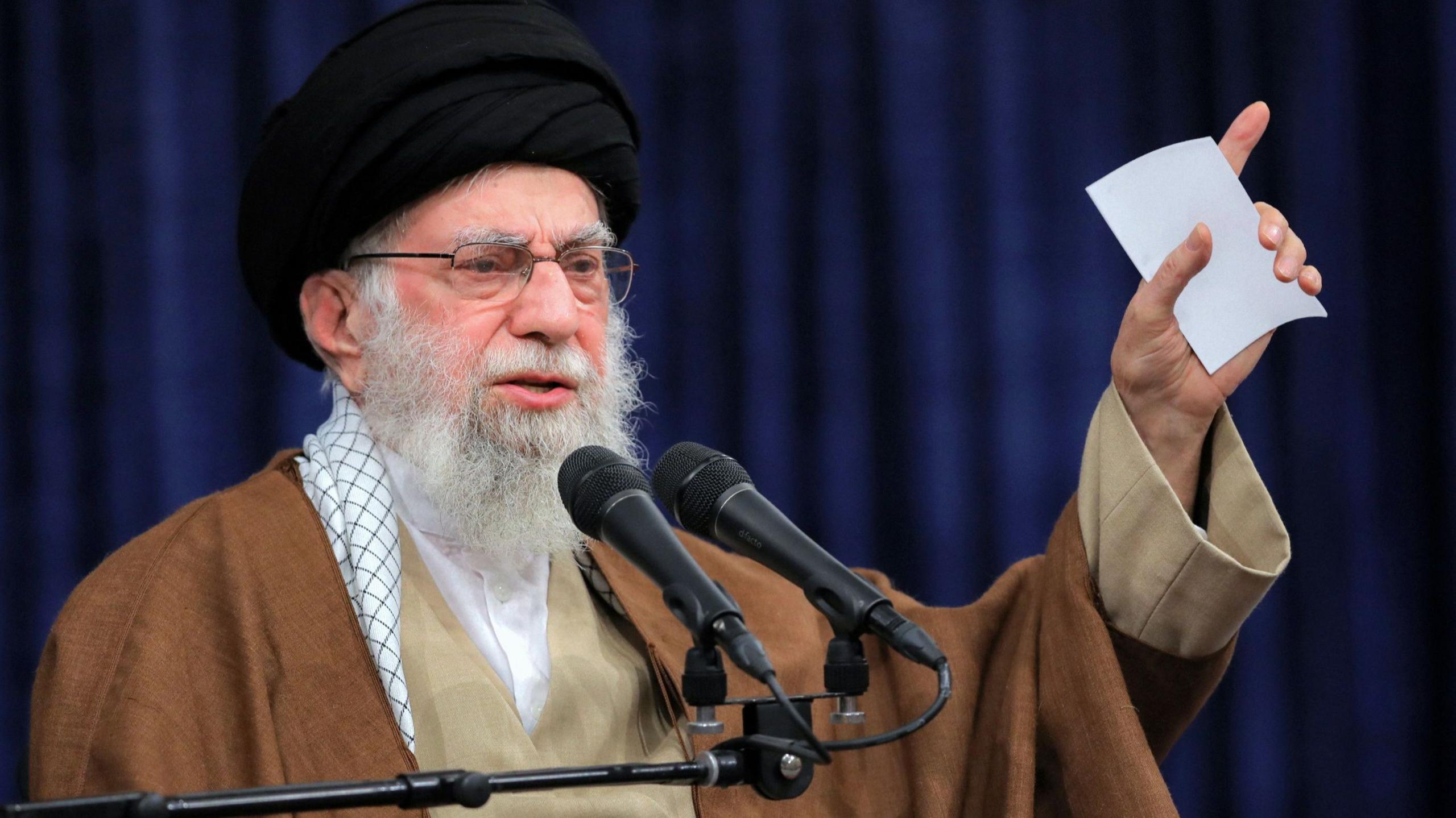Retaliate now, later or never: What Iran's next move could be

Iran and Israel have continued to fire missiles at each other following the US strikes overnight
- Published
Iran has responded furiously to the overnight US airstrikes on three of its nuclear sites, vowing what it calls "everlasting consequences".
But beyond the words, there will be feverish discussions taking place at the highest level inside Iran's security and intelligence establishment.
Should they escalate the conflict through retaliation against US interests, or, as US President Donald Trump has called on them to do, negotiate, which in practice means giving up all nuclear enrichment inside Iran?
This internal debate will be taking place at a time when many senior Iranian commanders will be looking over their shoulders, wondering if they are about to be the next target of an Israeli precision airstrike or whether someone in the room has already betrayed them to Mossad, Israel's overseas spy agency.
Broadly speaking, there are three different strategic courses of action now open to Iran. None of them are risk free, and uppermost in the minds of those taking the decisions will be the survival of the Islamic Republic regime.
Retaliate hard and soon
Many will be baying for blood. Iran has been humiliated, first by Israel, now by what it has often in the past called 'the Great Satan', its term for the US.
Iran's ongoing exchange of fire with Israel continues into its tenth day but retaliating against the US brings a whole new level of risk, not just for Iran but for the whole region.
Iran is believed to retain about half of its original stock of around 3,000 missiles, having used up and lost the remainder in exchanges of fire with Israel.
Iran has a target list of around 20 US bases to choose from in the broader Middle East.
One of the nearest and most obvious is the sprawling headquarters of the powerful US Navy's Fifth Fleet at Mina Salman in Bahrain. But Iran may be reluctant to strike at a neighbouring Gulf Arab state. More likely, perhaps, would be to use its proxies in Iraq and Syria to attack any one of the relatively isolated US bases at At-Tanf, Ain Al-Asad or Erbil. Iran has form here.
When Trump ordered the assassination of Iran's Quds Force leader Qassim Suleimani in 2020, Iran responded by targeting US military personnel in Iraq but avoided killing any by giving prior notice. It may not do so this time.

Satellite images showing before and after the US struck the nuclear facility
Iran could also launch 'swarm attacks' on US Navy warships using drones and fast torpedo boats, something that the Revolutionary Guards Corps Navy has practiced exhaustively over the years.
The aim, if it went down this route, would be to overwhelm US naval defences through sheer numbers. It could also ask its allies in Yemen, the Houthis, to resume their attacks on Western shipping passing between the Indian Ocean and the Red Sea.
There are also economic targets Iran could strike, but this would antagonise its Gulf Arab neighbours who have recently reached an uneasy modus vivendi with the Islamic Republic.
The biggest and most damaging target here would be choking off the vital Strait of Hormuz, through which over 20 per cent of the world's oil supplies pass daily. Iran could do this by sowing sea mines, creating a lethal hazard for both naval and commercial shipping.
Then there is cyber. Iran, along with North Korea, Russia and China, has a sophisticated offensive cyber capability. Inserting destructive malware into US networks or businesses is undoubtedly one option under consideration.

Iranian Foreign Minister Abbas Araghchi said US President Donald Trump has "betrayed" his country
Retaliate later
This would mean waiting until the current tension has subsided and launching a surprise attack at a time of Iran's choosing, when US bases were no longer on maximum alert.
Such an attack could also target US diplomatic, consular or trade missions, or extend to the assassination of individuals. The risk here for Iran, of course, is that it would likely invoke renewed US attacks just as ordinary Iranians are returning to normal life.
Trump says Iran must make peace or face future attacks after US strikes
Don't retaliate
This would take enormous restraint on Iran's part but it would spare it from further US attacks. It could even choose the diplomatic route and rejoin negotiations with the US, although Iran's foreign minister pointed out that Iran never left those negotiations, that it was, in his words, Israel and the US that blew them up.
But restarting the US-Iran negotiations in Muscat, Rome or wherever, would only be worth doing if Iran was prepared to accept the red line that both the US and Israel are insisting on. Namely that for Iran to keep its civil nuclear programme, it must send all uranium outside the country for enrichment.
Doing nothing after taking such a battering also makes the Iranian regime look weak, especially after all its warnings of dire repercussions if the US did attack. In the end it may decide that the risk of weakening its grip on its population outweighs the cost of any further US attacks.

